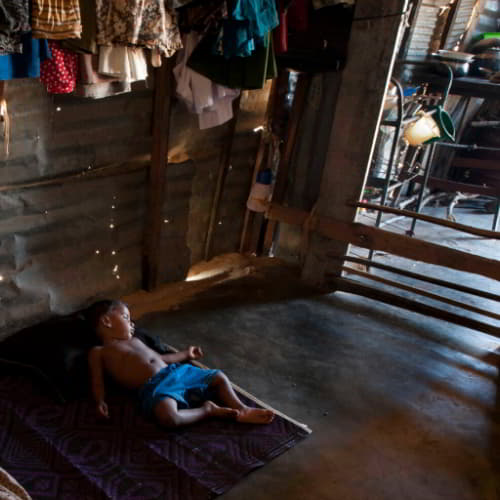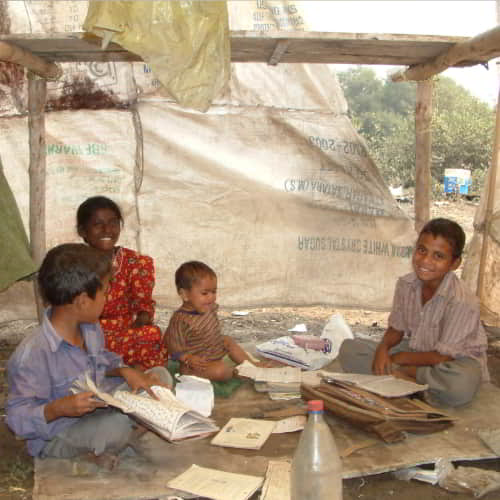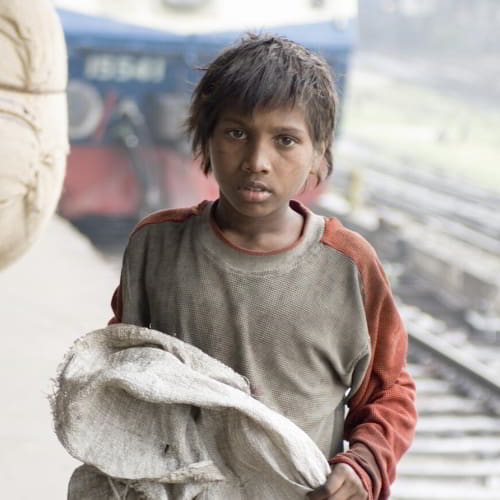Effects of Poverty on Child Development
In recent years, numerous organizations have conducted extensive research on the effects of poverty on child development, revealing a grim reality. According to UNICEF, an alarming statistic emerges—children make up half of the global population struggling to survive on less than $2.15 per day. A staggering one billion children find themselves trapped in multidimensional poverty, devoid of basic nutrition and access to clean water. Even more distressing is the fact that approximately 356 million children are ensnared in the clutches of extreme poverty.[1]
The Multifaceted Effects of Poverty on Child Development
The effects of poverty on children reverberates through every stage of their development. It commences in the womb, where maternal malnutrition can severely compromise a baby’s growth and overall health.[2] The repercussions extend beyond birth, with poverty perpetuating hunger, lack of medical care, and inadequate sanitation facilities. The Children’s Bureau issues a stark warning, highlighting how poverty can negatively shape both physical and mental development, even altering the fundamental structure of a child’s brain. Tragically, the odds are stacked against children who experience poverty-related risk factors, increasing their vulnerability to health issues such as heart disease, hypertension, stroke, obesity, certain cancers, and even shortened life expectancy.[3]
Due to the effects of poverty on education, this beacon of hope becomes an elusive dream for countless children ensnared in poverty’s clutches. In impoverished nations, public schools often demand tuition fees, an insurmountable obstacle for struggling parents. Even in cases where education is offered free of charge, the burden of essential supplies and uniforms can deter families from sending their children to school. Shockingly, more than 90% of children living in poverty face speech, learning, or emotional developmental issues.[4] Malnutrition and resource scarcity create a breeding ground for these challenges, perpetuating an unrelenting cycle of disadvantage.
The effects of poverty on children’s lives extend beyond the classroom, impacting their crucial role within the family unit. Oftentimes, children are forced to forego education to assist in meeting their family’s basic needs. Scarce access to clean water compels children to embark on lengthy journeys to collect water, further curtailing their educational opportunities. The dire financial circumstances may compel families to push children into child labor, robbing them of their chance at a brighter future.
In the shadow of poverty’s relentless grasp, children grapple with the suffocating weight of hopelessness. The scarcity of counseling or mental health support exacerbates their distress, as those around them are equally ensnared in the cycle of despair. The normalization of hopelessness perpetuates a tragic status quo.
Fatal Consequences: Child Mortality
UNICEF delivers a sobering truth—children from impoverished households face double the mortality rate of their more fortunate peers.[5] The grim disparity in survival rates underscores the urgency of addressing the impact of poverty on child development.
Society’s Burden: The Vicious Cycle
The profound effects of poverty on society initiates a downward spiral that transcends generations. Stricken by severe deprivation, communities become trapped in a relentless cycle of poverty, exerting a cascading effect on economies and societies. The absence of essential services, clean water, and resources compounds the suffering of those most in need.



Comments
Post a Comment